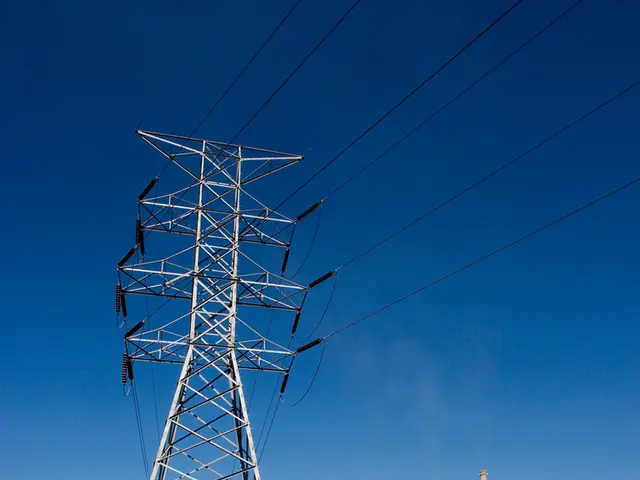Potential resurgence of high-risk lending with CFPB's diminished enforcement.
The Consumer Financial Protection Bureau (CFPB), a banking watchdog established following the 2008 global financial crisis, finds itself in turmoil as the Trump administration pushes for drastic limitations on its operations.
Last month, CFPB employees found themselves staring at a stark order to halt operations, effectively shutting down the agency. This order, however, has been met with legal challenge and has been partially reversed.
The CFPB, which oversees banks, lenders, and other financial institutions, is no stranger to controversy. Its primary aim is to ensure consumers are treated fairly by these financial entities. Despite these turbulent times, fear of a reprise of the subprime mortgage crisis that led to the CFPB's creation, shouldn't keep Americans awake at night, experts suggest. Lenders and banks are now more tightly regulated, and consumers are better protected.
That said, the hobbling of an agency that often serves as a consumer safety net, means ordinary Americans might want to take matters into their own hands when it comes to dealing with lenders.
John Griffin, a finance professor at The University of Texas at Austin, offers a sobering perspective: "The CFPB's mission is to protect individuals. After the financial crisis, we saw there were a lot of individuals who had been taken advantage of. But I don't think the CFPB would be able to stop another financial crisis."
Established as part of Dodd-Frank, a 2010 federal law designed to correct financial vulnerabilities that precipitated the global financial crisis, the CFPB has since delivered $19.7 billion in consumer relief, helping 195 million people. But now, its role in the financial landscape appears to be diminishing.
"Gutting consumer protections while simultaneously permitting financial firms to take on greater risk is a dangerous combination," Elizabeth Warren, a Democratic senator who championed the CFPB, stated to CNN. "Working families cannot afford for policymakers to repeat the mistakes of the past."
There's been little response from the CFPB on the impact of these changes.
A Safer Home Loan Market?
Buying a home is typically the most significant purchase an American will ever make. As the CFPB's clout dwindles, ensuring you understand loan terms when taking out a mortgage might be more crucial than ever.
Despite the uncertainty, the home loan market today is significantly safer than it once was. In the years following the financial crisis, mortgage reform was introduced, banning the types of loans that contributed to the subprime crisis. Today, loans that require little or no proof of income are rare.

That being said, the defanging of the CFPB would mean the removal of vital safeguards for consumers. While the home loan market is less risky now, consumers should remain vigilant. "Gutting an organization like the CFPB does hurt investors on smaller financial transactions where they can get taken advantage of," Griffin warns.
When borrowing for a home, paying close attention to loan terms and shopping around for favorable rates becomes even more important. The CFPB doesn't just protect homeowners from predatory mortgage loans, though. It safeguards consumers from various financial abuses, including credit card companies, auto loans, and student loans.
Rheingold, executive director of the National Association of Consumer Advocates, advises consumers to continue filing complaints with the CFPB when they encounter issues. If the agency fails to act promptly, state attorneys general or legal services programs may still take up the fight against bad actors. The CFPB might be weakened, but it's not completely powerless.
'CFPB RIP'
After Russell Vought, a critic of the CFPB, was appointed acting director under the Trump administration, he quickly ordered a halt to all CFPB activities. This order was challenged in court, and a federal judge has stepped in to halt the stoppage.
Under Vought's leadership, the agency has dropped enforcement actions against several firms accused of ripping off consumers, including Capital One and Rocket Homes. Vought defends his actions, arguing that consumer protection has been "weaponized" and exceeded the CFPB's legal remit.
The CFPB's chief operating officer, Adam Martinez, testified in court that the engagement of Vought and his legal adviser has slowed down decision-making, starting from mid-February. However, he also confirmed that the agency is still functional.
Elon Musk's involvement through his Department of Government Efficiency (DOGE) has raised eyebrows, given concerns about potential conflicts of interest. Musk's business ventures include financial technology, and his close ties to the Trump administration raise questions about the motivations behind these moves.
In this tumultuous time for the CFPB, it's clear that the agency's role in protecting consumers is under threat. Whether the CFPB can continue to effectively safeguard Americans from financial fraud and abuse remains to be seen. Clearly, though, consumers will need to be more vigilant than ever to ensure they aren't taken advantage of.
In 2025, the diminished role of the Consumer Financial Protection Bureau (CFPB) raises concerns among experts, as it could lead to increased vulnerability for consumers. John Griffin, a finance professor at The University of Texas at Austin, warns that the gutting of consumer protections could potentially hurt investors on smaller financial transactions. Therefore, in light of the changes to the CFPB, it becomes crucial for consumers to pay closer attention to loan terms, shop around for favorable rates, and continue filing complaints when facing issues. In such an environment, consumers might need to take more active roles in protecting themselves from financial abuses, as the CFPB, while weakened, is not completely powerless.








